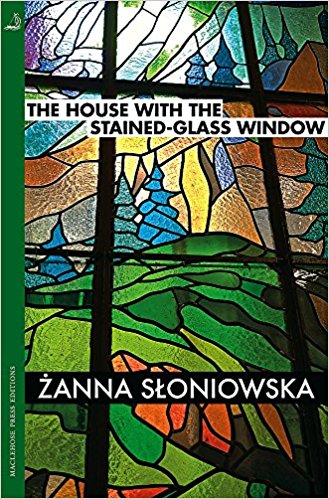The House with the Stained-Glass Window (2017)

The acclaimed story of a young girl’s awakening – set in the the evocative, beautiful Ukrainian/Polish city of Lviv. In 1989, Marianna, the beautiful star soprano at the Lviv opera, is shot dead in the street as she leads the Ukrainian citizens in their protest against Soviet power. Only eleven years old at the time, her daughter tells the story of their family before and after that critical moment – including, ten years later, her own passionate affair with an older, married man.
Just like their home city of Lviv, which stands at the crossroads of nations and cultures, the women in this family have had turbulent lives, scarred by war and political turmoil, but also by their own inability to show each other their feelings. Lyrically told, this is the story of a young girl’s emotional, sexual, artistic and political awakening as she matures under the influence of her relatives, her mother’s former lover, her city and its fortunes.
Zanna Sloniowska was born in 1978 in Lviv and is a journalist and translator. She now lives in Kraków. She won the Conrad Award, the Polish award for first novels, and Literary Award Nike 2016.
“The House with the Stained-Glass Window is remarkable, a gripping, Lvivian evocation of a city and a family across a long and painful century, at once personal and political, a novel of life and survival across the ages.” – Philippe Sands
Buy online:
Zielony Balonik book club notes:
Rose felt drawn to the real life of these people, and found the book gripping.
Zenon found the book hard to follow; the different generations, the various relationships, who is who; though it was helpful, in the English version, to have the various names of the city used, to help differentiate time periods. Parts of the book read like a tourist guide to the city, but these are interesting in themselves.
Identity can be constructed, whether Polish, Ukrainian, Russian, Soviet; yet it can also be inescapable, as when Great-Granma’s husband is executed in Leningrad for the crime of having a Polish background.
The narrator, female, unnamed, is 12 years old at the time of the novel’s key event, the killing of her mother, Marianna, during a Ukrainian nationalist demonstration in 1988. She later has an affair with her mother’s lover, Mykola. Is this an act of revenge on her mother? Does he take advantage of her, to the extent it becomes a controlling, or even abusive, relationship? His professional critiques are not themselves critiqued in the book.
Krystyna thought Aba – Marianna’s mother, the narrator’s grandmother – suffers worst, given the loss of her father, her mother’s moral blackmail and neglect, her own unfulfilled artistic potential, and her daughter’s death. She found the book fascinating. Her family had relatives in Lviv post-1945; she felt Poland forgot the city. The stained-glass window offers colour and hope, perhaps even an idyll, during grey years.
None of the women have happy relationships with men. In this context, perhaps Mykola is a positive figure, given his loyalty and lack of bitterness. A dysfunctional family, it is external events which shatter their lives – political terror, war and its aftermath, uprising. Post-1945, women were the central figures in families, as often the men had been imprisoned, deported or killed, or were alcoholics.
Tom found the episodic structure unsatisfactory. It seems to be presented as a Bildungsroman, but the narrator never faces a crisis which forces her to make a life-defining choice. The final chapter, taking place years after the events of the rest of the novel, has her involved in the Maidan protests, but this is very much a postscript.
Słoniowska herself – whose background is that of a Russian-speaking Ukrainian citizen (with excellent English) – needed to move to Poland to write this book (she moved in 2004, aged 26, though still has a flat in Lviv). The Polish version of the book includes phrases and sentences in Ukrainian, while the English version gives everything in English, generally without comment. The Polish–Ukrainian War of 1918–19 emphasised the difference between the two languages, which previously had both been used in everyday exchanges.
Ken was struck by the lack of Jewish content to the book (one single mention); perhaps the justification is that it was absent from Słoniowska’s own family history. He was also struck by the old Soviet soldier referring dismissively to “the locals”, rather like an official of the British Empire might have spoken.
We heard that the translator, Antonia Lloyd-Jones, was meticulous in her work, and contacted Słoniowska on a daily basis; it was she who clarified the narrator’s age.
Grazyna found the book readable, and the setting was familiar territory for her. Great-Granma is elegant outside, but a smelly old woman in her room – the importance to her of her public image.


